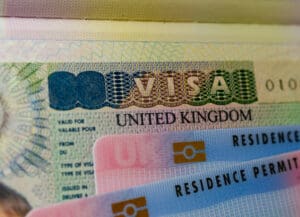
UK Business Visa Types for Entrepreneurs: All that You Need to Know Before Relocating Your Business to the UK
The UK is one of the world’s largest and most thriving economies. The business-friendly environment and favourable regulatory policies are an entrepreneur’s dream, and its easy access to international markets makes it one of the world’s top investment destinations.
There are several UK business visa types for foreign entrepreneurs, innovators, and business leaders seeking to do business in the UK, and this guide discusses the options available.
UK Business Visa Options for Entrepreneurs
The UK business visa types available for entrepreneurs include:
Business Visitor Visa
The UK Business Visitor Visa permits visitors to stay in the UK for up to six months for business reasons such as:
Attending meetings and conferences
Conducting site visits and inspections
Negotiating contracts and deals
Overseeing the delivery of goods or services provided by a UK company to an overseas organisation
Attending trade fairs and exhibitions
Providing training or consulting services
The UK Business Visitor Visa is a type of Standard Visitor Visa with no route to permanent residency. Visa holders must leave the UK before their visas expire and refrain from attempting to stay in the country by making frequent or successive visits.
Innovator Founder Visa
The Innovator Founder Visa is for experienced entrepreneurs seeking to launch and grow a business in the UK. The business idea must be innovative, i.e. new and distinct from anything available. It must also be viable and scalable, with the potential for job creation and growth into local and international markets. Innovator Founder Visa applicants must also obtain an endorsement from an endorsing body to be eligible.
Applicants for this visa must intend to play a vital role in the daily management and growth of the business. They will usually need to prove their English language proficiency unless they have already done so in a previous successful visa application. The Innovator Founder Visa is valid for three years and can be extended. It also offers a quick route to permanent UK residency.
Global Business Mobility Visa
The UK’s Global Business Mobility Visa is a group of work and business visas that allows workers from foreign companies to work in the UK. All five visas in this category have different eligibility requirements:
Senior or Specialist Worker Visa
The Senior or Specialist Worker Visa allows senior management or specialist staff of foreign businesses to undertake temporary work assignments in the UK. Applicants must be existing employees of a company approved for sponsorship by the Home Office. Successful visa applicants can stay in the UK for up to five years or the time the certificate of sponsorship allows, whichever is shorter. They can also apply for an extension but cannot apply to settle permanently on this visa.
Graduate Trainee Visa
The Graduate Trainee Visa is for foreign graduate trainees who want to undergo a training program at a UK subsidiary or branch of their overseas employer. Successful applicants can stay in the UK for up to 12 months or the time the certificate of sponsorship allows plus 14 days, whichever is shorter. The Graduate Trainee Visa is non-extendable, but holders can reapply for another Graduate Visa from outside the UK.
UK Expansion Worker Visa
The UK Expansion Worker Visa is designed for businesses looking to expand into the UK. It allows employers to send their employees to establish a new UK branch. UK Expansion Worker Visa holders can stay in the UK for up to 12 months or the time stated on the sponsorship certificate, whichever is shorter. The visa also carries an option to extend for an additional 12 months.
Service Supplier Visa
The Service Supplier Visa permits overseas service providers to temporarily relocate to the UK to deliver services to British-based clients. The visa is open to self-employed professionals and employees of overseas organisations.
Self-employed individuals must have at least 12 months of professional work experience, while employees must have worked for their employers for at least 12 months. The Service Supplier Visa allows a six to 12-month stay, depending on the service agreement.
Secondment Worker Visa
With a Secondment Worker Visa, overseas businessescan transfer their employees to work for their UK-based clients or partners. Eligible applicants must possess at least 12 months of work experience with a foreign company that has secured a high-value contract with a UK organisation.
This visa also allows holders to stay in the UK for up to 12 months or the time stated on the sponsorship certificate, whichever is shorter. It also comes with the option to extend for an additional 12 months.
Global Talent Visa
The Global Talent Visa allows top talents from academia, digital technology, and arts and culture to showcase their abilities in the UK. Applicants must be recognised as leaders or potential leaders in their field to be eligible for this visa. They must also obtain an endorsement from any approved endorsing body or have won an eligible award to qualify for this visa.
Global Talent Visa holders can stay in the UK for up to five years with an option to extend for an additional one to five years. They may also be eligible for UK settlement after three years.
How to Apply for the UK Business Visa
Applications for UK business visas are usually submitted online through the UK government website. The process involves completing the appropriate visa application form and uploading copies of all supporting documents, including a valid passport, bank statements, proof of qualifications or business plan.
Applicants must also pay the specific visa application fee for their chosen pathway and the Immigration Health Surcharge. The visa processing time typically takes around three weeks.
Conclusion
The UK offers numerous opportunities to foreign entrepreneurs seeking growth, innovation, and access to new talent and markets. Understanding the UK business visa types and what they mean can help these entrepreneurs navigate the application process and successfully establish their business presence in the UK


